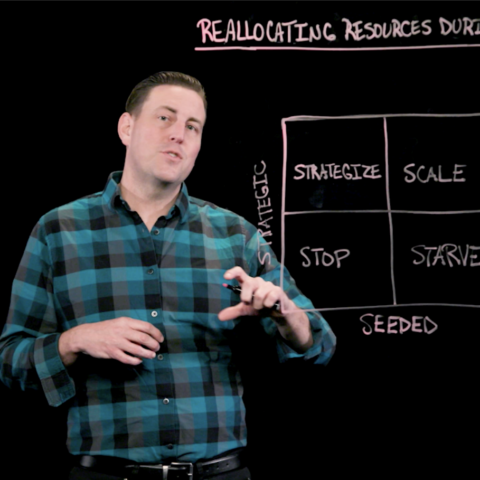I want to talk to you about reallocating resources during change. Here’s a quadrant to help you categorize changes in your church and what to do with those changes. Let’s take a look.
Now, if the shift that you are trying to make is not strategic, and it’s not a felt need for your people – that means it’s not deeply seeded with them – then no further questions asked. Just stop doing it. You don’t need to have a conversation with anybody because nobody really cares and it’s not strategic.
Now, if the shift is not strategic, and it’s a felt need for people – it is more deeply seeded in the ministry – you need to stop allocating time, volunteers, and resources to whatever it is.
If the shift you are trying to make is strategic, but it’s not yet a felt need – people haven’t caught on to it, it’s not something they care about – then we want to strategize around that in order to help it become a felt need for your people so that it can soar and scale up.
Which leads us to our final shift and that is scaling. If something is a felt need and it’s strategic then you need to scale that shift. Dedicate time, volunteers, and resources to elevate it so it can continue to grow and gain momentum.
Now that this assessment is done, it’s not really done. I’m sorry to say, what works well in one season of ministry, may not work well in another. So, we have to continually assess these shifts to make sure they best fit the needs of our people.
Now that you understand reallocating resources during change, what are you going to do about it?
To learn more about how to lead change in your church, join us at Blueprint Coaching. Choose from three cities and dates! For information and to register, click here.

